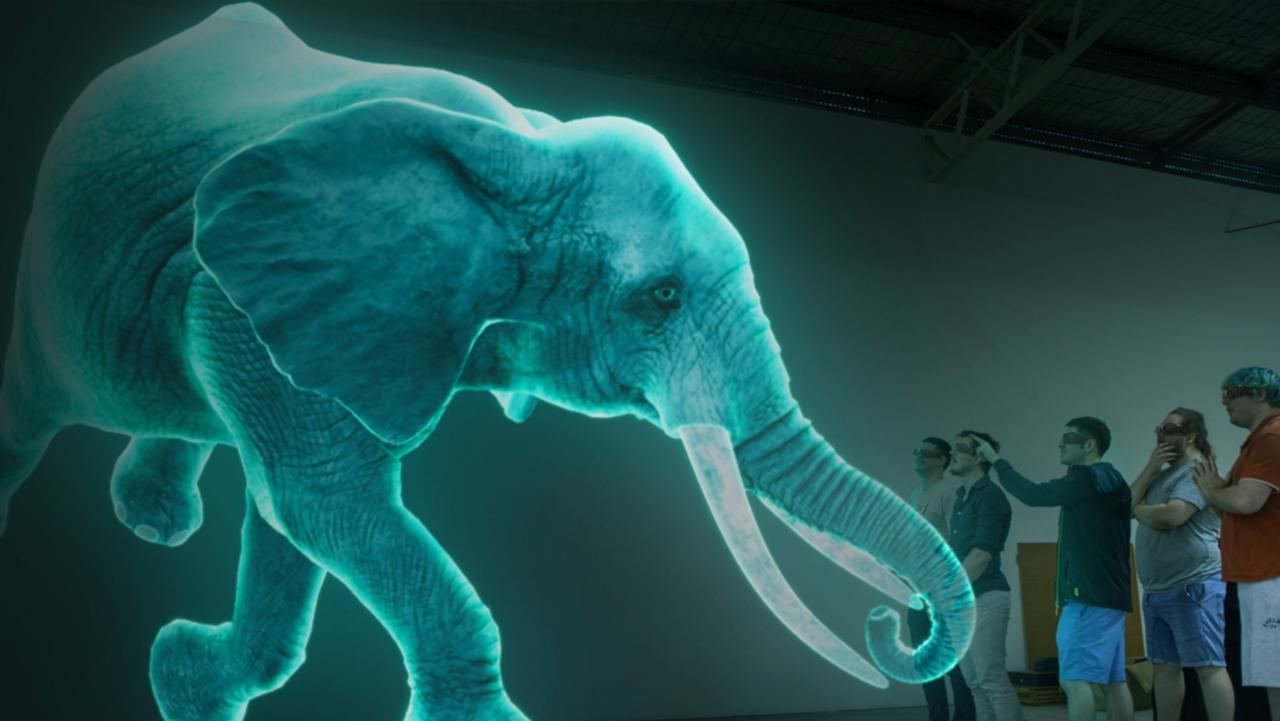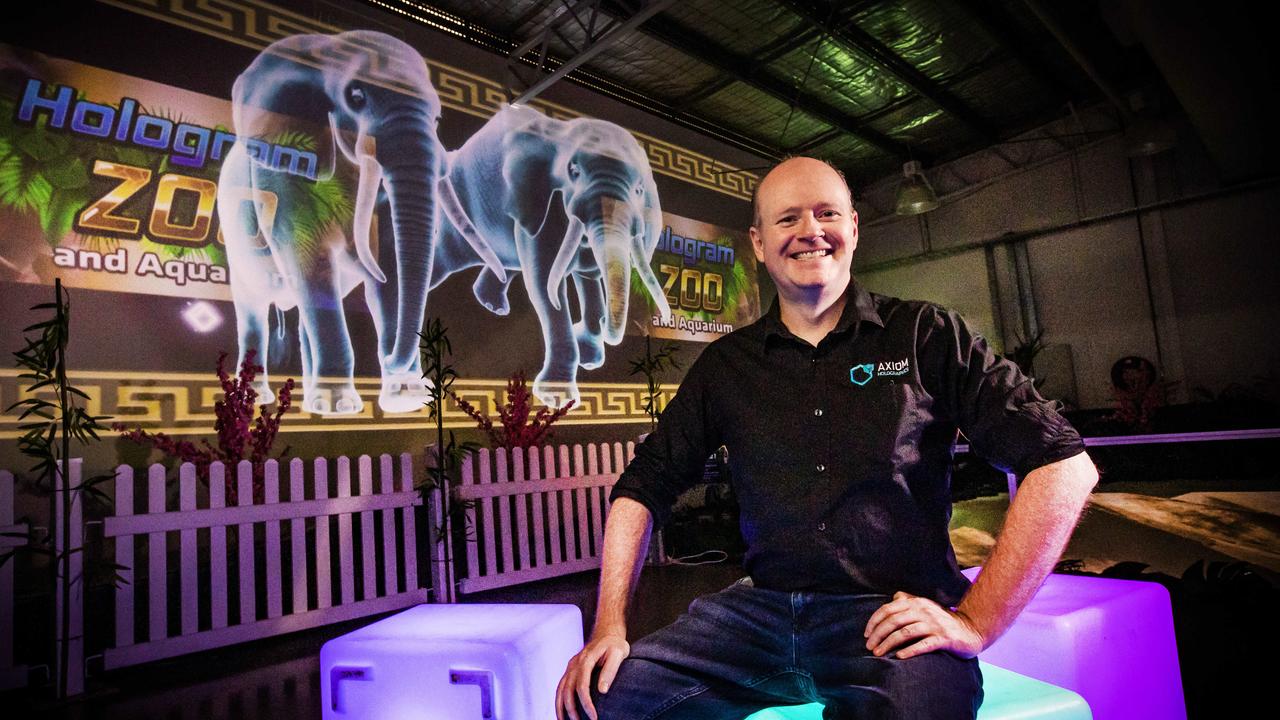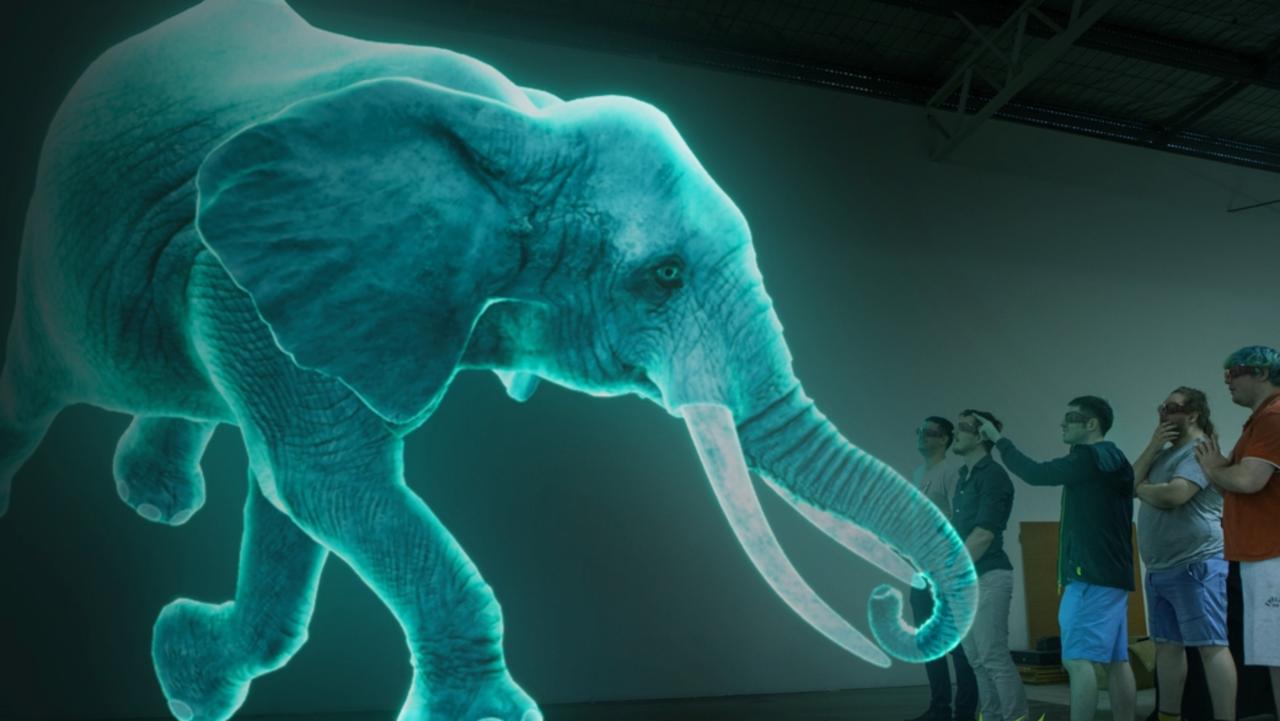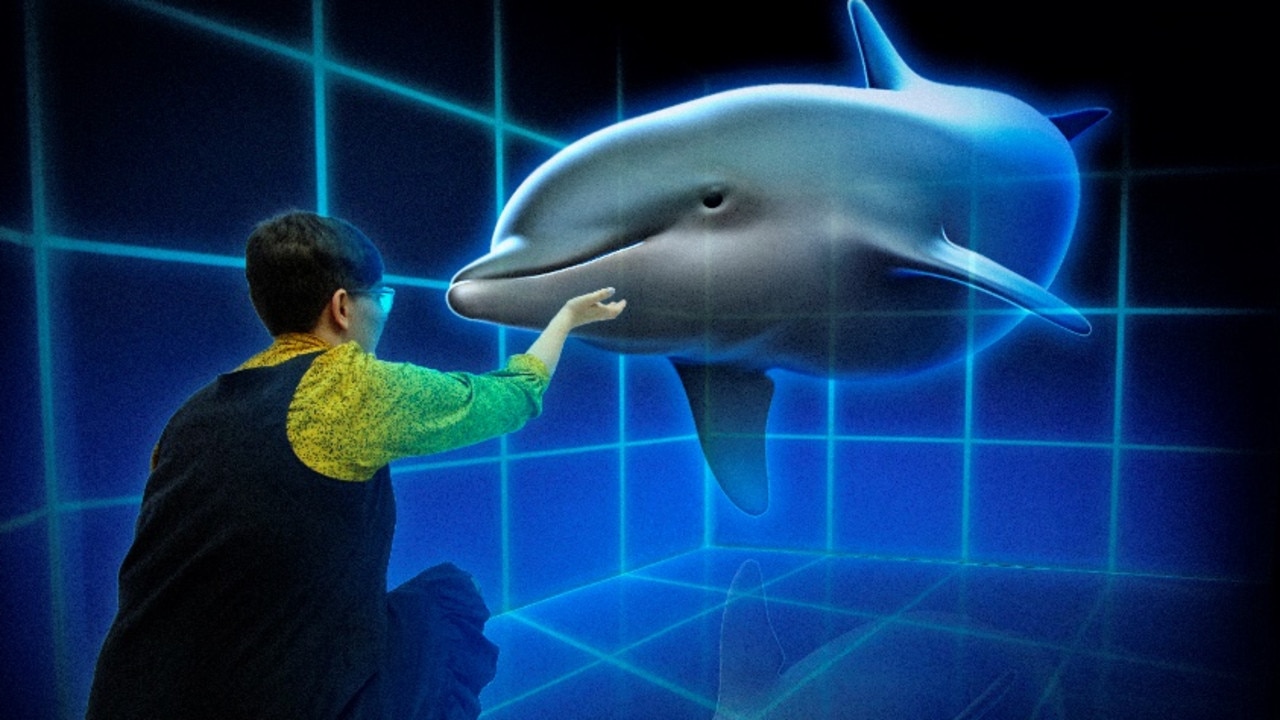Queensland’s company Axiom Holographics to take their Hologram Zoo global
The stunning success of the world’s first Hologram Zoo in Brisbane has convinced inventor and entrepreneur Bruce Dell to seek investors to roll out the concept in Australia and overseas.

QBW
Don't miss out on the headlines from QBW. Followed categories will be added to My News.
After years of creating hologram systems for science organisations, governments and the defence industry, Brisbane inventor and entrepreneur Bruce Dell has segued into the zoo sector with a difference.
Over the Christmas holidays Axiom Holographics opened the Hologram Zoo in a 1000sq m space at a Cannon Hill shopping centre on Wynnum Rd in Brisbane’s southside.
The zoo experience was initially expected to run from December 10 until Christmas, but its success convinced Mr Dell, who is the chief executive of Axiom, to continue running it and to fast track its expansion in Australia and overseas.
“Every single session was booked out six weeks before we even opened and since then we’ve had 94 per cent occupancy every day over the holidays with 13,000 people through,” he said.
“We made $200,000 in revenue in the first 30 days and we’re looking at doubling our space at Cannon Hill and we have really good revenue forecasts. The kids love it. They’re screaming and laughing and we’re looking at setting up birthday parties.”

Billed as the world’s first Hologram Zoo, patrons wear 3-D glasses and can see and walk among a 25m flying whale made of laser light, a life-size hologram brontosaurus, giraffes, elephants and more.
There are more than 50 animals at the zoo and patrons can enter 20m hologram tunnels, cross a bridge over a hologram canyon with a 50m drop, and navigate a river at night where glowing pink lotus blossoms float under the bridge and 3m goldfish swim below.
The zoo has added smell technology through a collaboration with Australian company Luxaroma and visitors can smell the rain, storms, desert and even the holographic waterfalls.
Axiom Holographics has been making big strides in hologram technology for years, including recently creating the hologram aquarium room forums luxury resort in the Maldives.
Mr Dell said they were now committed to bringing Hologram Zoos to the world.
“This is the most advanced technology centre in the world,” he said.
“Usually, Axiom Holographics makes hologram systems for science organisations, governments and defence. Our customers include the US Marines, the Royal Australian Air Force, Bentley, and many others.
“With the zoo, we are bringing this sort of technology within reach of the public and what better way than with a zoo. We’re now preparing to go all over the world – Sydney Melbourne, Tokyo, the US – and we’re looking for investors.
“We’re very much saying we’re on to something good here and we need money to power it along through the world. Things are moving quickly and I think by the end of the year there will be a number of Hologram Zoos popping up all over the place.”

Originally from Wollongong in NSW, Mr Dell has a swag of inventions and patents under his belt with his Unlimited Detail Graphics System algorithm that now powers groups like Leica, the French railway system, and the Tokyo traffic authority.
He moved north after being lured by David Merson, former chief executive of Mincom, and in 2010 they set up Euclideon Pty Ltd, which focused on 3-D geospatial graphics.
He later left Euclideon and set up Axiom, which is now valued at more than $120m.
The company is based in Murrarie, with a production facility in Yatala between the Gold Coast and Brisbane, where they design and manufacture their microchips and hardware.
They have commercial, defence and education divisions and also manufacture entertainment and hologram arcade equipment.
Axiom also creates holograms for museums and its Holoverse entertainment arcades – a chain of entertainment centres around the world offering immersive holographic games and experiences.

Mr Dell said Axiom currently has about 60 staff members which will expand as the Hologram Zoo concept takes off.
“We intend to greatly increase our numbers because we have something that’s a big winner,” he said.
Australia can now compete globally in the high tech fields because of the availability of cheaper manufacturing equipment, Mr Dell said.
“Australia is usually thought of as a farm or mine and not a place where you can design microchips and hardware,” he said.
“A few years ago that would have been impossible. But the cost of actually building hardware like 3-D printers, microchip printers as well as calibration machines would be over $1m, and now they are $10,000 each.
“I think we are a good example of how Australia, with a huge reduction in price of machines that make the hardware devices, we can rethink how we can get into more hardware production where previously we would have been locked out.”




